GameSpotting Nights
In this episode of GameSpotting, the editors take on jobs moonlighting as private detectives.
In this episode of GameSpotting, the editors take on jobs moonlighting as private detectives. While solving our latest case, The Missing Controller, Greg talks about the ladies, Bethany thinks she's a chicken, and Jeff drives in a demolition derby--and then there's the crazy stuff. Do you have a hot tip for the GameSpot sleuths? Hit the hotline in our forums. If you'd like to be the special guest star in next week's episode, there's no better way than by submitting your own GuestSpotting column.
Greg Kasavin/Executive Editor
"I think the result of all these men working together on all these games is a decided lack of balance in the creative process."
Bethany Massimilla/Community Manager
"Let's talk seriously a minute here--how many chicken RPGs have you played?"
Alex Navarro/Associate Editor
"Microsoft is going to sit back and figure out what the next logical step is. This, of course, begs the question: What is the next logical step?"
Jeff Gerstmann/Senior Editor
"When was the last time you saw a pit crew feverishly slamming the trunk of a sedan with sledgehammers, just to make sure it folds up right when it gets smashed up?"
Josh Larson/Director, GameSpot Trax
"Little did we know at the time of that topless halftime show, a dark storm of censorship was forming and heading toward all entertainment forms, including our beloved games."
Jason Ocampo/Associate Editor
"There's an old programmer saw that goes, 'On time, on budget, no bugs. Pick two.'"
Tyler Winegarner/Associate Producer, GameSpot Live
"If Nokia really wanted to own the hearts and minds of the handheld gaming market, all it would have needed to do is add online ranking boards to the snake game."
Nathan Anderson/GuestSpotter
"Take away the characters, and make the plot more generic, and I can get by all right, as long as I've got godlike control over my guy."
Melvin K. Poindexter/A Dork With a Story to Tell
Do you have some hilarious/poignant/touching story involving video games? Well stop being a selfish dork and share it with the world in this very forum! Read our GuestSpotting FAQ for details on submitting your own column.
| Greg Kasavin Executive Editor |
Samus' Suit Was Made by Men
One of my theories is: The worst thing about today's games is that they're developed almost exclusively by men. "Theory" is actually much too strong of a word, as it's really nothing more than a hunch. The idea that games are developed almost exclusively by men is an assumption, which may or may not be accurate depending on your definition of "almost exclusively." By now, many women seem to be working in the game industry, and many of them have positions of authority, so don't take this as some sort of plea for equality, because I happen to think the equality is already there. It's just that our minds have some catching up to do. Anyway, my assumption is based on how the names I see in the closing credits of the games I play are almost all male names. And I think the result of these men working together on all these games is a decided lack of balance in the creative process.

While I'm making disclosures and disclaimers, here's the last one worth mentioning: I have no real clue as to what differentiates men and woman past a superficial and physiological level, but I assume there is some difference of perspective and experience that the average man has versus the average woman, if only because of those superficial and physiological differences.
At any rate, I'm sure we all agree that today's games (notwithstanding casual games and a handful of other exceptions) are predominantly malecentric, and their depictions of women, by and large, are embarrassing. For me, certain female characters in games make me feel embarrassed to be a gamer, especially when I'm otherwise enjoying the game. Female characters in games are even more superficial than male characters (I should note, though, that most male characters in games also leave a lot to be desired), and I'm going to argue that even when they're supposedly being portrayed in a sympathetic light or cast as strong, respectable characters, they're still mostly just being objectified and are presented to suit an adolescent male audience.
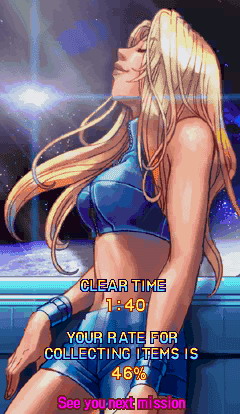
Let me give you some examples of what I mean. Metroid, the perennial favorite sci-fi series from Nintendo, has a female main character. This was first discovered by surprise at the end of the original 1986 Metroid game, in which, if you finished the game having met certain special conditions, you'd see a brief cutscene of Samus Aran's red and gold armor magically disappear to reveal a shapely, scantily clad woman, who then waves at you. It comes as a bit of a shock, and why shouldn't it? Samus doesn't sound like a woman's name. Also, isn't she cold in that?
Anyway, so now we know Samus' "secret," and while she's still best known for that red and gold armor of hers, fans of the Metroid games also know that each game in the series encourages them to reach the finish line as quickly as possible to catch a glimpse of the woman beneath the suit. While I wouldn't go so far as to say that I disapprove of this--I like the series, after all, and it's targeted at people like me--it also rubs me the wrong way. I don't appreciate that Samus being a woman is a punch line.
Ironically, Metroid is often cited as one of those games that's quite progressive in its portrayal of women. It's obvious, I hope, that I happen not to think so.
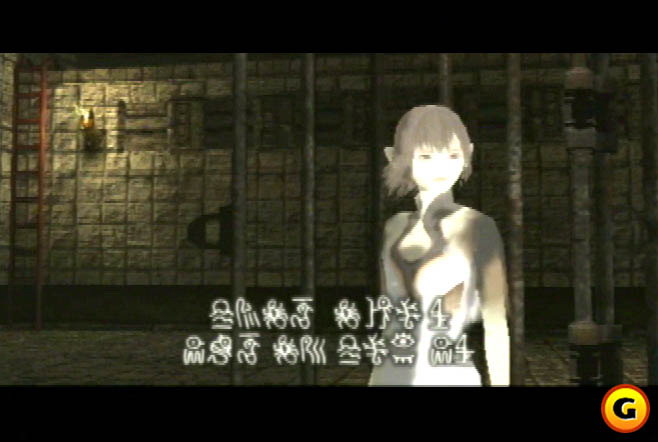
Another game that many critics and game lovers love to talk about is ICO, which, chances are, you've heard of by now but haven't actually played. It's an artistic, emotionally charged game, and those who appreciate rare instances in which games tug at their heartstrings often swear by it. In the game, there is the delicate, unspoken love between the game's main character, a young boy, and the frail wisp of a girl he is trying to lead to safety from a shadowy menace.
I never finished ICO. Not only did I get stuck at a certain point about halfway through, but more to the point, I grew sick and tired of the girl, Yorda, and her uselessness. This character was so pathetic, it almost made me angry. I admit that this is not the effect the game was intended to have on me or on anyone; however, here's this supposedly sympathetic female character in a video game that can do absolutely nothing for herself and is constantly in danger of being kidnapped. Who better than a man--or in this case, just a boy--to come to her rescue. In short, I decided that Yorda deserved her fate and that ICO was one big male fantasy about being the classic hunter/provider/protector. The woman is there for comfort, and the man must do all the work. Sorry, no, that's not what I've been taught from living in the Bay Area for most of my life.
That's also not what I've been taught by my parents. My mother is a neurologist. Her mother is a physician, as well. The women have always worn the pants in my family, so to speak. Perhaps this helps you understand my perspective.
Of course, I'm overlooking all the more apparent cases of female characters in games. The issues with such cases already have been well documented, from what I've read in articles such as this one. Meanwhile, I'm just perversely pointing out that even those commonly accepted cases of "positive portrayals of women in games" are deeply flawed.
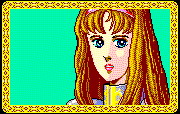
I suppose there are a few exceptions. The original Phantasy Star, a classic role-playing game for the old Sega Master System, incidentally has a female main character. It's a simple story of revenge, and Alis' gender never comes into play at any point. A talking cat, whose name I was never really sure how to pronounce, and two male companions (one of whom was androgynous but had a man's name, so I assume it's a he) join her quest because they believe in what she's trying to do.
Also, Cate Archer from the No One Lives Forever games at least seems to carry herself with some dignity, even if she is kind of a polar opposite to Austin Powers and so is a bit ridiculous in her own right. There's also one specific female character from Grim Fandango, Olivia, whom I like a lot. And, April Ryan from The Longest Journey. But, that's pretty much it.
In short, I think men are inherently incapable of doing an adequate job of properly presenting female characters in games, which leads me to my hunch. Fortunately, I have another hunch that this problem will be solved within the next 10 years, if not the next five.
| Bethany Massimilla Community Manager |
A Chicken in Azeroth
I like World of Warcraft. I've been in the beta for nearly three weeks now. I play a human priest named Wibble. I have a nice, spiky mace and what seems like a metric smurfload of spells. I have been on many quests, ridden a gryphon many times, squished many monsters, collected many items, and have ended up with my face in the dirt because one of those damned black dragon whelps gifted me with a nice fireball in the back. I like World of Warcraft. I really do.

But on April Fool's Day, one of Blizzard's in-game Game Masters turned me into a chicken, and I've been polluted ever since. I still like World of Warcraft, don't get me wrong, but let's talk seriously a minute here--how many chicken RPGs have you played? (I'm not referring to that time you took your McNuggets and acted out a tragic opera in three acts before consuming all of the actors.)

I'm used to schlepping around Azeroth, decked out in my priestly raiment, passing by scores of humans and grand night elves and stout dwarves and little gnomes who are likewise appropriately accoutered according to their profession--taking it all in with appreciation but also with easy acceptance. I'm no stranger to fantasy worlds with similar races, and I've seen swords and sorcery and chain mail before. I've quaffed potions before. I've initiated my avatar into dance animations at random before.
But April Fools' Day was the first time I played a chicken initiating a duel with a night elf. And I won. And it was totally awesome.
In my first chicken moments, though, I ran around without really knowing what to do. What were my capabilities? What were my limits? Do feathers confer unique armor bonuses? As I scuttled around the feet of the other characters clustered in the town of Lakeshire, the humanoid characters, my betters, I began to feel strangely empowered. Here I was in a world of carefully constructed pretense, and suddenly I was a simple creature without any pretense at all. I had clumsy little feet and useless little wings, and a beak. No one was paying me any mind. It was like I was playing another game entirely.
So I played it the only way I knew how. I turned in my sampling of liquors to an NPC barkeep who seemed strangely unconcerned to be paying his coin to a small fowl. I made the run from the Redridge Mountains down into Goldshire, occasionally fluttering my wings to skim along the earth. I joined forces with another poultry comrade, and together we pecked monsters out of the bucolic Elwynn Forest. We ran into the great city of Stormwind, intent on clandestine chicken business, through the Valley of Heroes, past the statues that make even a paladin seem tiny. Suddenly I wanted a statue of my own, fashioned in my own absurd little likeness. I wanted to do great deeds in the name of the other wretched, unnoticed little creatures of the realms. I wanted to be an avian hero. I wanted my own expansion pack with chicken art gracing the cover. I made a point of returning to Lakeshire on the back of a gryphon, perched proudly. Who says chickens can't fly?
As it so happens, my time as a chicken ended in a wholly unremarkable way--one of those damned black dragon whelps gifted me with a nice fireball in the back. I was attempting to heal a human that was fleeing it, and in falling, I returned to human shape myself, my feathers melting back into robes, my body assuming its normal frame. I've continued to play World of Warcraft in the way it was meant to be played, and I've continued to enjoy it. But part of me remains wistfully attached to the time I was a minute, feathered nobody in a great world, writing my own mythos, pecking and scratching my way into new, grand histories.
| Alex Navarro Associate Editor |
If You Can't Beat 'Em...Quit
In this industry of ours, one is rarely ever taken by surprise. Game publishers are often a predictable lot, and it's usually not difficult to gauge where certain game franchises are headed in terms of sequels or cancellations. I was recently taken aback by a company announcement, for the first time in a long time, when Microsoft announced that it was "resting" its lineup of yearly sports titles. Not so much out of any real disappointment for not getting my yearly dose of NHL Rivals, NFL Fever, and NBA Inside Drive, but rather, that a company like Microsoft would actually be willing to come out and just say, "Hey, our games aren't good enough. We need some time to reevaluate things."

I, for one, applaud the decision. It seems like only mere months ago I was lamenting about the lack of EA Sports titles on Xbox Live and how I felt Microsoft's singular focus on pushing its own sports lineup and its online league service, XSN, was just a big mistake for all involved. Microsoft's sports games haven't been broken beyond repair, but year in and year out, they've lacked the kind of competitive qualities that EA and Visual Concepts' franchises have displayed over and over again. There's a good reason why they're currently the top dogs of the sports-gaming industry, and Microsoft knows that. Rather than simply continuing to pump out average games that have no hope whatsoever of reaching sales numbers comparable to even the ESPN titles, let alone EA's sales stranglehold, Microsoft is going to sit back and figure out what the next logical step is. This, of course, begs the question: What is the next logical step?
Some people have gone so far as to say Microsoft should just give up the sports game altogether. I actually think that would be a mistake. Why, given my general distaste for its products thus far, would I want to see more of its games in the future? Because at this point, simply ceasing to make sports games would inherently be a concession to Sony that it can't make it in the sports world. Granted, save for only a scant few exceptions, Sony's 989-developed first-party sports games haven't been anything to write home about either and, in fact, are consistently worse than anything Microsoft has been making. However, there's a distinct difference between Sony and Microsoft when it comes to these games. It basically boils down to Sony not having to care if its sports games are good or not.
Sony can continue to make subpar first-party sports games simply because people will buy them. Considering how many people out there own a PlayStation 2, there's bound to be a healthy section of the casual gaming audience that just doesn't know what the choice sports titles are. They see a game like NFL Gameday on the shelf, shriek, "Ooh! LaDainian Tomlinson!" with childish glee, and bam, that's another game sold. Microsoft does have this contingent of users, but when you consider the number of Xboxes currently sold against the number of PS2s out there, Microsoft's contingent can't compare. It's just not a reliable audience for Microsoft.

This seems to be a big part of why Microsoft had been pushing the "exclusive" features of its sports games so heavily--namely, the XSN support. Without a real casual audience to call its own, the only way to push its games was to try to draw in the enthusiastic audience. Of course, enthusiasts already know that EA and Visual Concepts frequently make superior games to anything Microsoft's been producing, so unless XSN was an absolute godsend for online gaming, there wasn't much reason to check it out--and unfortunately, it wasn't. XSN was a great idea in theory, but it obviously wasn't enough to make Microsoft's games top sellers on its own console.
That Sony has this audience and Microsoft doesn't is just another factor in the current console wars, with Microsoft still fighting it out with Nintendo for second place, while Sony sits comfortably on top. Nintendo has all but given up the sports genre on the GameCube, with only EA and Midway producing any non-Mario-themed sports titles for their console (and it seems as though Midway has pretty much given up on the Cube as well). To simply concede on first-party sports games would leave Sony the sole champion in terms of sports gaming variety on its console--not something Microsoft wants to do.
Another scenario put forth by some Internet forum denizens puts Microsoft on the hunt to buy Visual Concepts from Sega and transform its titles into Xbox exclusives. The evidence is definitely there. Sega's license with ESPN is up this year, the games aren't selling near as well as EA's, Sammy wants Sega to stop making the games, and so on. The question here isn't so much whether or not Sega can keep the ESPN license, but rather, whether or not Sega can keep Visual Concepts. ESPN is, by all accounts, quite pleased with the work Visual Concepts has done since picking up the license, and it stands to reason that ESPN will want to stick with a proven developer like VC (especially when you consider how painfully awful Konami's use of the ESPN license was). So, does Microsoft buy Visual Concepts from Sega and turn ESPN into an Xbox-only franchise? I have my own theories about this concept, but at this point, they're pretty much all hearsay. I will say that I honestly don't think Microsoft is going to do this, not even necessarily because it doesn't want to, but because of other extenuating circumstances.

The last possibility here is that Microsoft could be pulling its teams away from developing these games for the sole purpose of shifting resources toward Microsoft's next console. Could it be that Microsoft wants their full sports lineup ready for launch of the Xbox 2? This doesn't seem too far-fetched, as big-time sports games have helped sell consoles at launch in the past. But then, if the Xbox 2 really is only a year away, it stands to reason that EA and Visual Concepts won't be far behind with their sports lineups and, thus, would once again cut into Microsoft's first-party sales.
In the end, I feel that we will see at least one more installment of first-party Xbox games before the next generation of consoles hit shelves. I don't know this for a fact, and really, any one of the several scenarios I've mentioned could play out over the next year. However, no matter what the reasoning or the ultimate goal of Microsoft's decision making turns out to be, the point is that it made the right decision. Microsoft finally understands that it wasn't maintaining a competitive edge against the heavy hitters on the sports market and now is taking steps to correct it. In the long run, this is the best decision for everyone involved, and it shows that Microsoft is willing to do what it takes to be a serious contender for number one, both in sports gaming and the console market.
| Jeff Gerstmann Senior Editor |
Driver's-Side Door Shots
The concept of a good old-fashioned demolition derby is an awesome one. We, as a society, love to see car wrecks. It's as inescapable as the snarl of morning commute traffic that results every time we all slow down to gape at a fender bender on the side of the freeway. It's a sport, and the men and women who excel in it are one part gladiator and one part grease monkey. When was the last time you saw a pit crew feverishly slamming the trunk of a sedan with sledgehammers, just to make sure it folds up right when it gets smashed up? It's been almost a year for me, but the weather is heating up, which means that county fair season is rolling around once again, which means that it's almost time to see some cars get smashed the hell up.

Over the years there have been a handful of demolition derby games. In 1984, Midway released a little gem called, simply, Demolition Derby. The arcade game came in a few different configurations, but the best is a four-player tabletop machine. With a steering wheel and the ability to drive both forward and in reverse, Demolition Derby was hardly a complex game. But now, 20 years later, Demolition Derby still stands as one of the most realistic games in the genre. While that's partially a testament to how cool Demolition Derby was, that's more of a black mark on the way the genre has developed. The key feature of Demolition Derby is that it makes two simple suggestions at the outset of the game. "Protect your radiator. Use your rear bumper to hit other cars."
Fast-forward to more modern times, and we've got the similarly named Destruction Derby for the PlayStation and Saturn. It's pretty old. So old that it's one of the big-box PlayStation releases, not some little jewel case game. When Destruction Derby first came out, I was totally stoked. Jazzed, even. Finally! Car-on-car violence that doesn't rely on the crutch of vehicle-mounted weaponry to get by! Since it was, truly, the only game in town, I was willing to overlook a lot of its flaws back then, but in retrospect, it had several. For starters, the focus was taken off of simply smoking into another car as fast and as hard as possible. Instead, the Psygnosis-published game had you trying to get other cars to spin around when you hit them. The more a car spun, the more points you'd earn. What? Since when did car-wreckin' boil down to some sort of pirouette competition? What happened to engine shots? Smoke pouring out of the radiator? The loud pop of a tire shot hobbling an opposing car? Nope. None of that here. Just race around the track and nudge other cars in hopes of sending them into spins. Eventually you'd get to a more open-ended stage where you just smashed up cars in an arena. But other than breaking up car damage into a few generalized zones on the car, you still aimed to spin more than you aimed to kill.
Destruction Derby caught on, to a certain extent, and it's been sequelized several times since. Most recently, the series went online with the PS2 game Destruction Derby Arenas. Arenas adds online play and nitro boosts and is slightly better about scoring based on damage, but for the most part, it's still a game about spinning your targets around...which is superlame.
All this adds up to there being a huge hole that some game developer could really fill quite easily by developing a more simulation-oriented demolition derby game. All it would take is a more realistic damage model that takes location-specific damage into consideration. So if I shift into D and start slamming into cars with my front end, chances are I'm going to blow out my own radiator long before the end of the heat. And if two cars that are crinkled up in just the right way collide, they might get stuck together. Or maybe one will just drive up on top of part of the other car. You could even have the option to ban shots on driver's-side doors, if you so desired. Given how far games like Burnout and tech demos like that XNA car crash thing are taking crash modeling, it seems like a destruction derby game could get very realistic, and very cool, very quickly.
Taken a step further, you could easily see a career mode that has you touring the county fair circuit and making contacts at junkyards to keep the flow of solid, tanklike '70s sedans flowing. Though it's not unheard of to see one car make it through multiple events, drivers still tend to go through cars pretty quickly. So you'd always have to have additional cars waiting in the wings, should one of them get banged up too badly in an event.
I guess when it comes down to it, I'm just surprised that such a game doesn't already exist. Car-on-car violence is totally sweet. Heck, it even lends itself to the sort of awful advertising and marketing slogans that games seem to tack on these days, like, uh..."road rage...to the Xtreme!!!!!!" or "Your morning commute just...got...ugly." See? Terrible! So of course the game would be a hit!
| Josh Larson Director, GameSpot Trax |
The Fallout From Janetgate
Almost 90 million people in the US watched the Super Bowl this year, and the lasting image is not Adam Vinatieri's last-second field goal to win the game, but the [ahem] "wardrobe malfunction" exposing halftime performer Janet Jackson. Little did we know at the time of that topless halftime show, a dark storm was forming and heading in the direction of all entertainment forms, including our beloved games. Here's a recap of what's transpired and why we should all brace ourselves for what's ahead.
The first media form to be impacted was TV. The Grammy's followed the Super Bowl by a couple of weeks, and immediately certain acts were revised and tape delays were instituted. Programming on MTV and even shows like ER on NBC were impacted. But this knee-jerk reaction didn't stop there.
Next up, the censorship storm headed for radio. Love him or hate him, but Howard Stern reaches more young male listeners (advertisers' favorite demographic) than any other. His brand of comedy has not changed for over a decade, and yet now the censors rallied against him. The first strike was from Clear Channel and its Responsible Broadcasting Initiative, which dropped Howard Stern from multiple cities. And now Howard is waiting for the FCC to nail him with countless fines for obscenity.
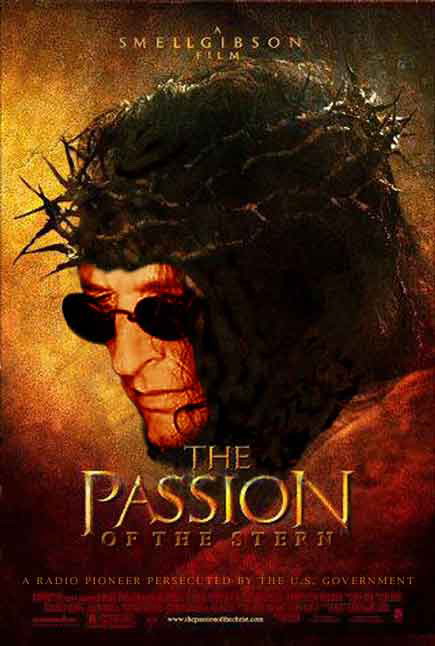
The Internet has also felt the ripple effects from Janetgate in less obvious ways. You're unlikely to see controversial content on the home pages of the major portals--AOL, MSN, and Yahoo. And the policing of online might just be getting warmed up.
And now another newer member of this entertainment club will get hit--the games industry. Controversy is nothing new for games when it comes to violence and sexual themes. But I don't know if we're ready for Hurricane Janet. Highly anticipated games later this year will definitely serve the cause of the right-wingers. Think Doom 3 and Grand Theft Auto: San Andreas won't have huge bull's eyes on their backs? And, in an election year no less? If Wal-Mart and other top retailers choose not to carry games with mature content, it would be a massive blow to our industry. Games in development that are looking to "push the envelope" in inventive ways would get scrapped in favor of safer, licensed games.
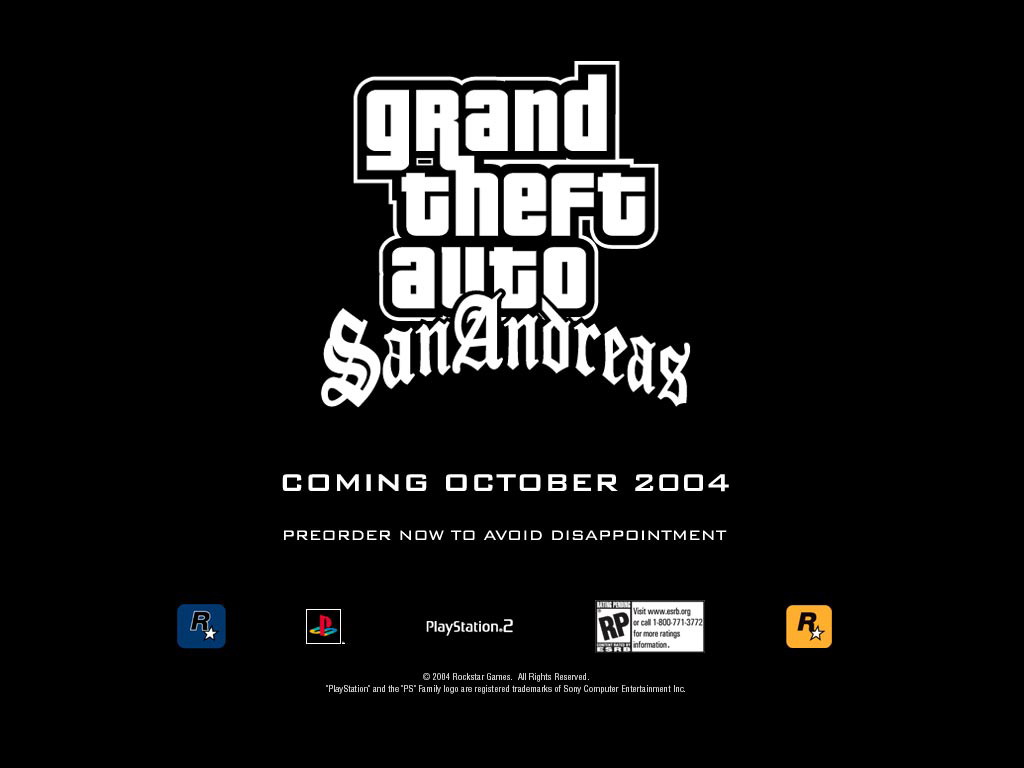
What can we do about it? I'm not big on politics, but the scarier notion is that I don't see a lot of friends of games in either the Republican or Democratic Party. The Democrats are supposedly tied at the hip with Hollywood and big entertainment, yet Senator Joe Lieberman has ridden his "games are evil" shtick straight to the forefront of that party. Sadly, I don't have a lot of answers, but I plan to stick with the content I like even if that will mean listening to Howard Stern on satellite radio, reading The Onion more than Yahoo News, and downloading gigabytes of mods because the censors have broken through the floodgates.
| Jason Ocampo Associate Editor |
How Much Is That Game in the Window?
I'm not an economist, nor do I play one on TV. But I'm fascinated with the economics of everyday things. For example, when I ride the bus, I try to figure out just how much revenue the bus will generate today and how much of that goes to pay for salaries, fuel, and maintenance. A lot of times, particularly in the case of airlines, I wonder just how it is they make any money at all (truth be told, most aren't.) That's one reason why I love Tycoon games that let you build elaborate systems, like theme parks and airports. You get a chance, in a fun way, to see how the real world works. Given my predilection, I naturally wonder about the gaming industry, and, unfortunately, that's not as much fun. You don't have to think too hard before you see some troubling trends.
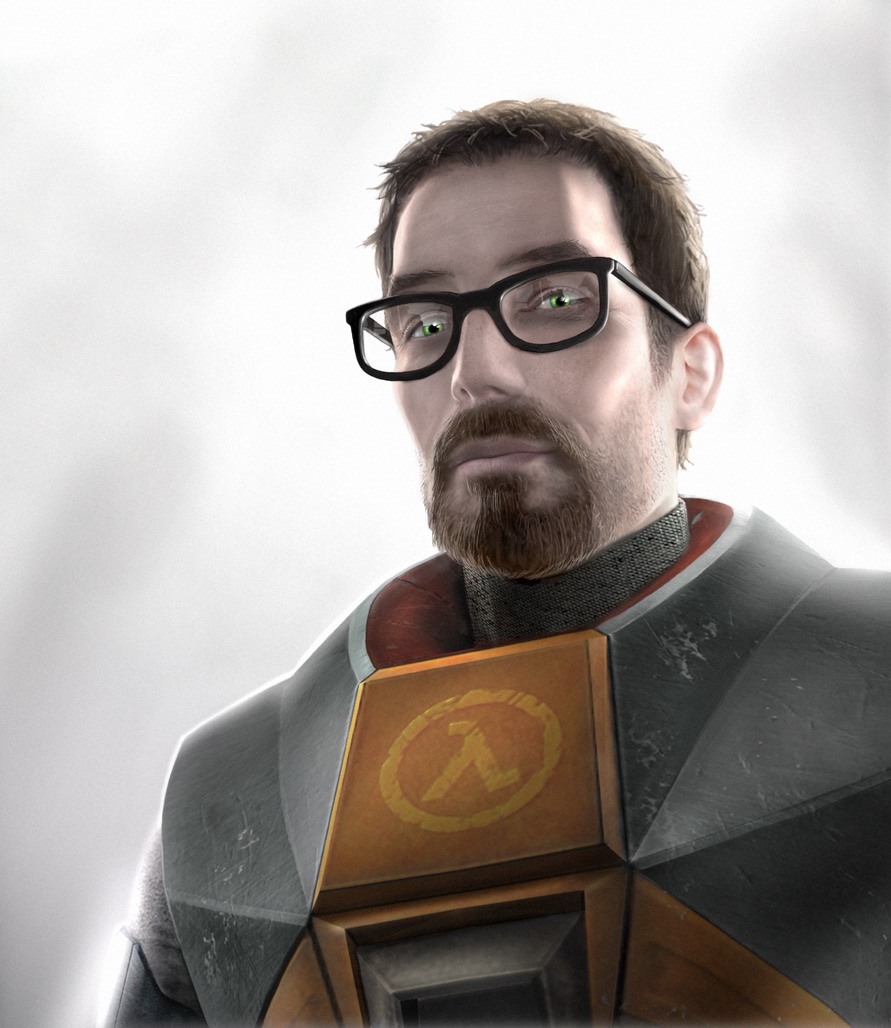
For as long as I've been buying games since the late 1980s, new games have generally sold for $50. That's typically the maximum price point that consumers will accept for electronic entertainment. Companies have experimented with higher prices over the years, but we always come back to $50. Meanwhile, virtually every other entertainment segment has seen rising prices; movie tickets are more than $10 in some cities, while books and music have also risen in price. For the consumer, the stable price of games is a good thing. While the prices of games have stayed the same, they have actually become less expensive due to inflation. Back in 1989, $50 was a larger percentage of the average weekly salary than it is today.
At the same time, development costs have increased dramatically. The photo-realistic graphics and the rich content in games demand bigger and bigger development teams. A decade ago, you could get away with having a programmer or two and a couple of artists on a project. Now you need teams of programmers and artists working for years to make a game. Talent is expensive, else it gets hired elsewhere. Technology must be licensed, office space leased, and computers and equipment purchased. The budget on a major title can easily top $10 million or more. You have to sell 200,000 copies at $50 each just to break even on a $10 million investment, and that's not taking into account the cut the retailers take. That means that publishers need to sell considerably more copies just to break even.
Now, the game industry is a hit-driven business, just like the movie industry. For every huge blockbuster hit, there are a larger number of misses. So, in essence, the hits pay for the misses. And game development, like any other creative endeavor, is as much an art as it is a science; there's no formula to follow to guarantee a hit every time.
It's something to certainly think about, especially with a new generation of consoles on the horizon. I get the feeling that console gamers will discover something that PC gamers already know: Producing these amazing experiences is getting harder to do. Better graphics capabilities means more time has to be invested in the artwork and 3D modeling. Broadband means that multiplayer capabilities will be standard on virtually every game, so that's another load on the developer. And each blockbuster hit raises the bar of expectations even higher for following games, so designers and programmers have to come up with new experiences.
This also means that we should probably get used to delays. It will take a lot of time to develop these kinds of games--witness the long wait associated with Half-Life 2, Doom 3, and Halo 2. There will be plenty of less complex games to fill the void, but the eagerly awaited titles are going to require long gestation times. There's an old programmer saw that goes, "On time, on budget, no bugs. Pick two." Unfortunately, the nature of consoles demands they be as bug-free as possible, so that means either development times are going to get longer, budgets are going to get higher, or, most likely, both.
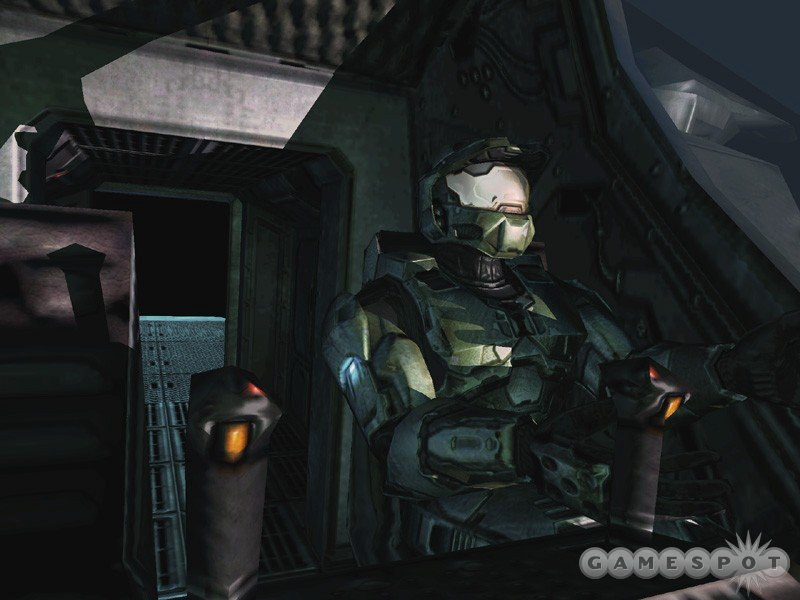
Anything that makes development easier and cheaper is a good thing. Microsoft's newly announced XNA development platform is a start, but I still can't help but feel we're headed toward some kind of brick wall in terms of the economics of the industry. Budgets are getting higher, but the price consumers pay remains the same. Something has to give, eventually. Unfortunately, I don't have the answers, and neither, I suspect, do the economists.
| Tyler Winegarner Associate Producer, GameSpot Live |
The Humble Road to Global Domination
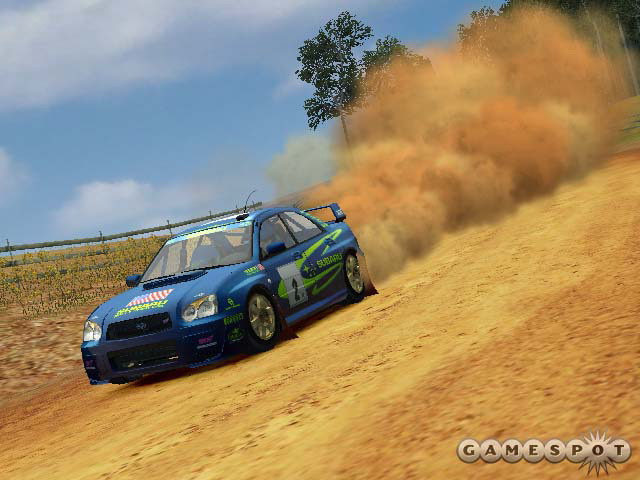
I've never been particularly good at winning things. I've always seen gambling as tossing money into a hole and, if I'm lucky, as a charitable donation. I've never been especially good at being the best at video games. I've got my corner of games that, when I'm feeling competitive, I can dominate. Though, these are usually niche games, which would mean that my opponents haven't spent much time with them. But, whatever, I still have my fun all the same. Thing is, console games are incorporating online components more and more often these days, and these niche games aren't so niche anymore. There are tens of thousands of players who think they're better than me, and some of them are, and frankly, I think that's fantastic. Having a broad base of people to play my niche games against has finally given me the burning urge to really be competitive.
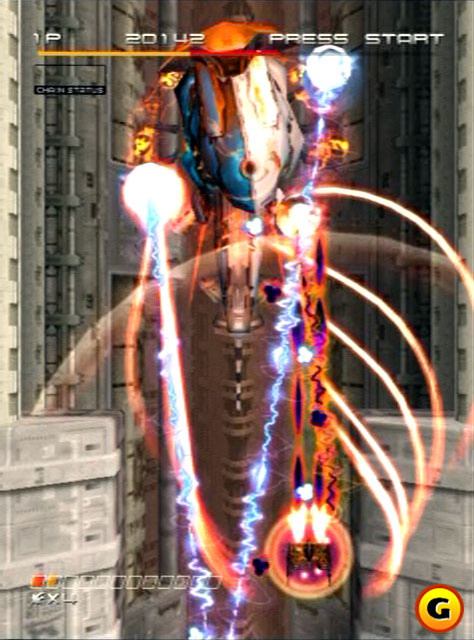
One of the perks of an online ranking system is that it allows you to make a bit of a name for yourself without having to be the absolute best of the best. Otherwise, you'd have to eke out a reputation based on your namesake alone--which certainly can be done. Competitive Quake players like Thresh or Kornelia did this back in the day, but the pool's a lot bigger now. Online ranking systems also help give you a better sense of where you stand in the grand scheme of things, for better or for worse.

In a lot of ways, I find a good online ranking system to make for a better experience than actual live-action online play, so the fact that games like Colin McRae Rally 04 or Burnout 2 only had online scoring was no bother to me. Sometimes it's nicer just to work on my skills by my lonesome, where I can focus on the task at hand, without having to worry about someone crashing into me or cutting me off when I'm gunning for a faster lap time. When you set that faster time, make that bigger jump, or cause that bigger crash, you get instant feedback on how much higher you've raised your rank and how much further you've got to go to reach the top--which is fantastic incentive to keep playing. If Nokia really wants to own the hearts and minds of the handheld gaming market, all it has to do is add online ranking to Snake. The number of calls that get routed to voicemail would go off the charts.
There's nothing that replaces the experience of competing directly against another live opponent. Then again, persistent online ranking puts you in competition against the entire gaming community, not just the small handful of people you might be playing at any given moment. It's more than enough to turn a relatively laid-back fellow like me into a raving, competitive twit--one who will spend hours trying to shave a second off of a lap time, just so I could raise my rank a few points, and then do it again the next night. But, it's that sort of obsession that makes gaming so great in the first place, right?
| Nathan Anderson GuestSpotter |
Death to the Silent Protagonist!
I hate Chrono Trigger. I've hated it for years, and I've taken a lot of flak about it. I've got my reasons, but chief among them is the game's silent protagonist, an RPG convention that goes beyond this particular 16-bit sacred cow and causes one to question the roots of the RPG experience. For the sake of this column, let's divide RPGs into two broad categories: American-Computer and Japanese-Console. I realize that there are tons of crossover RPGs (Morrowind on the Xbox) or others that defy categorization, but it's not too far-fetched to say that most RPGs, on computer or console, boil down to either Wizardry-like games or Final Fantasy-like games.
As the name infers, the American-Computer RPG was created primarily by American programmers for PCs and stems largely from the Dungeons & Dragons brand of high fantasy that has long defined the American nerd. The focus is on stats, skills, items, and, most importantly, the ability to create your own character. The character is supposed to be you--Ultima went so far as to call it "Avatar." As any pen-and-paper geek will tell you, this is one of the most satisfying aspects of any RPG, and I'm sure you want to hear all about my 17th-level half-elven fighter/mage. I'm basically given an empty vessel of a character, for which I provide the thoughts, the emotions, and the dialogue--though I do admittedly look pretty stupid talking to my monitor in the obligatory dwarven/Scottish brogue.
The Japanese-Console experience draws a lot from manga and anime, not just in appearance, but also in construction. As much as the term is overused, the games truly are interactive movies or novels, where characters and plot proceed with occasional input from the player. For whatever other innovations the seminal Final Fantasy series institutionalized, I think the most groundbreaking was the decision to give predetermined names to the characters--for us, it was either Final Fantasy II or Final Fantasy IV, depending on who's counting. Sure, you could rename Cecil if you wanted, but he had a preset personality and dialogue that would play out no matter what I thought. He was a character, one that I had nominal control over, but he was otherwise indistinguishable from Aragorn, James Bond, or Mickey Mouse.
The avatar-focused RPGs tend to have open-ended stories, lots of areas to explore, and way more customization. Truth be told, I get bored with this type of RPG for these exact reasons. The plots have to be fairly generic to avoid pulling me out of the game (my character can't have "issues" like the troubled protagonists from FFVII-X and Xenogears). The dialogue is one-sided, my responses limited to yes/no, multiple choice, or the ever-popular "..." A human GM/storyteller can apply the plot to my specific character, but there's no way a programmer can account for unique personalities like this on the electronic level. The plot-based RPGs have fewer options for customization. In Final Fantasy VII, Cloud gets a weapon, a piece of armor, an accessory, and some material--far less selection than the helmet/gloves/belt/boots/armor/left-hand/right-hand/ring/amulet options found in Diablo and other such games. They tend to be more linear (no world map in FFX). At the same time, the plots are generally more complex and rewarding, with characters who grow and progress throughout the game. Sometimes it's hit and miss--Squall was so annoying that I often wished he'd just shut up. I admit that Square's confused, spikey-haired protagonists may be wearing out their welcome, but they still exhibit more personality than my Diablo II sorceress is even capable of.
This brings me back to my original point about Chrono Trigger, which I feel synthesizes the worst aspects of the two approaches. Here's a character that doesn't speak and therefore can't really evolve or grow as a character. I might not like Tidus' attitude, but at least I can get inside his head. From a personality standpoint, he provides the blank canvas of a D&D character sheet. But from a gameplay perspective, he's not very customizable. He's a fighter, he comes from a certain place, and he's assigned a specific appearance right out of the gate. He's not me. I realize I'm picking on Chrono Trigger, though Chrono Cross, Golden Sun, and even the Pokémon games are guilty of this as well. I tend to get swept up in a good console RPG the way I do a book, carried along by intriguing plots and characters that I care about. Take away the characters, and make the plot more generic, and I can get by all right, as long as I've got godlike control over my guy. The "silent protagonist" has no place in console RPGs.
Got a news tip or want to contact us directly? Email news@gamespot.com
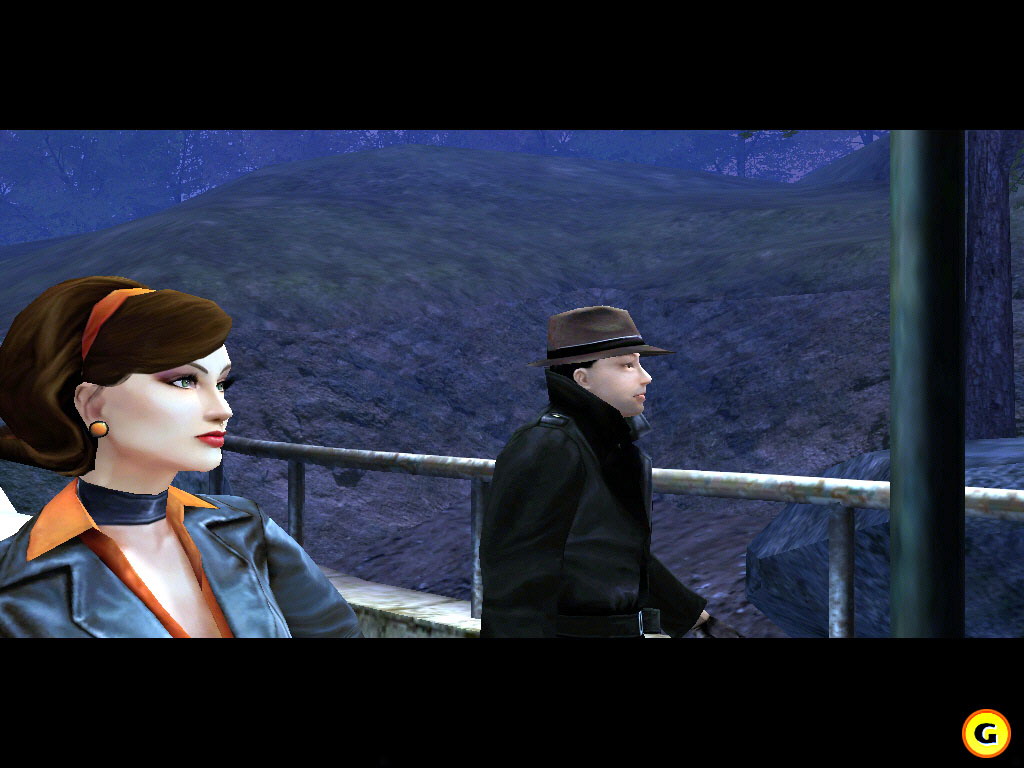

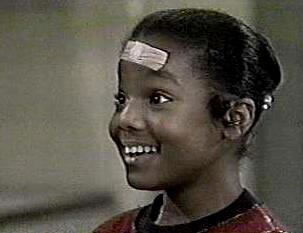
Join the conversation